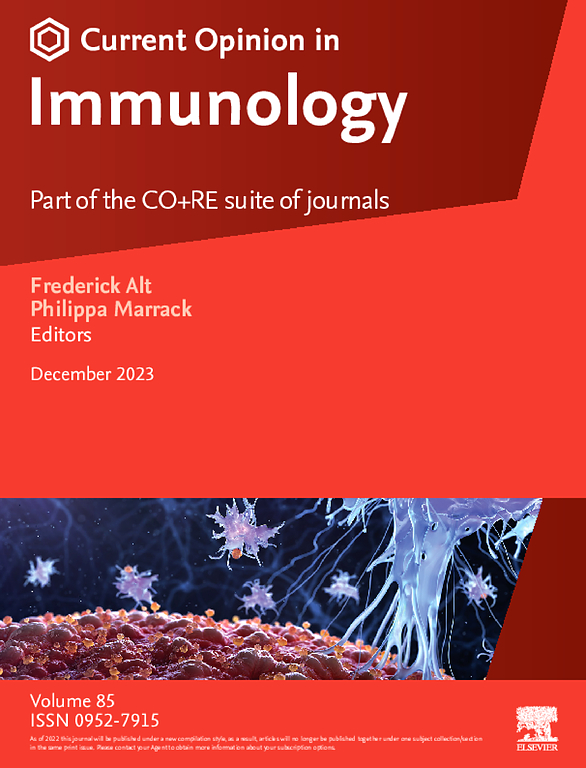Epigenetic regulation of B cell response in autoimmune diseases
IF 5.8
2区 医学
Q1 IMMUNOLOGY
引用次数: 0
Abstract
The maintenance of peripheral tolerance depends on various regulatory mechanisms. Thus, the breakdown of self-tolerance leads to the development of autoimmunity. Although the pathogenesis of autoimmune diseases is complex, they are primarily antibody mediated. Notably, autoreactive antibodies are detectable in ∼70% of patients with rheumatoid arthritis and have pathogenic effects. Hence, it is important to investigate the molecular mechanisms underlying B cell response in autoimmune diseases. Recent studies have shed light on the alterations in epigenetic modifications that accompany the development of autoimmune diseases. In this review, we will discuss the recent advances in this field, which may provide precise clues for the diagnosis and therapies for patients with autoimmune disorders.
自身免疫性疾病中B细胞反应的表观遗传调控
外周耐受性的维持取决于多种调节机制。因此,自我耐受性的破坏导致自身免疫的发展。虽然自身免疫性疾病的发病机制复杂,但主要是抗体介导的。值得注意的是,在70%的类风湿性关节炎患者中可检测到自身反应性抗体,并具有致病作用。因此,研究自身免疫性疾病中B细胞反应的分子机制是非常重要的。最近的研究揭示了伴随自身免疫性疾病发展的表观遗传修饰的改变。本文就这一领域的最新进展进行综述,以期为自身免疫性疾病的诊断和治疗提供更准确的线索。
本文章由计算机程序翻译,如有差异,请以英文原文为准。
求助全文
约1分钟内获得全文
求助全文
来源期刊
CiteScore
13.30
自引率
1.40%
发文量
94
审稿时长
67 days
期刊介绍:
Current Opinion in Immunology aims to stimulate scientifically grounded, interdisciplinary, multi-scale debate and exchange of ideas. It contains polished, concise and timely reviews and opinions, with particular emphasis on those articles published in the past two years. In addition to describing recent trends, the authors are encouraged to give their subjective opinion of the topics discussed.
In Current Opinion in Immunology we help the reader by providing in a systematic manner: 1. The views of experts on current advances in their field in a clear and readable form. 2. Evaluations of the most interesting papers, annotated by experts, from the great wealth of original publications.
Current Opinion in Immunology will serve as an invaluable source of information for researchers, lecturers, teachers, professionals, policy makers and students.
Current Opinion in Immunology builds on Elsevier''s reputation for excellence in scientific publishing and long-standing commitment to communicating reproducible biomedical research targeted at improving human health. It is a companion to the new Gold Open Access journal Current Research in Immunology and is part of the Current Opinion and Research(CO+RE) suite of journals. All CO+RE journals leverage the Current Opinion legacy-of editorial excellence, high-impact, and global reach-to ensure they are a widely read resource that is integral to scientists'' workflow.

 求助内容:
求助内容: 应助结果提醒方式:
应助结果提醒方式:


